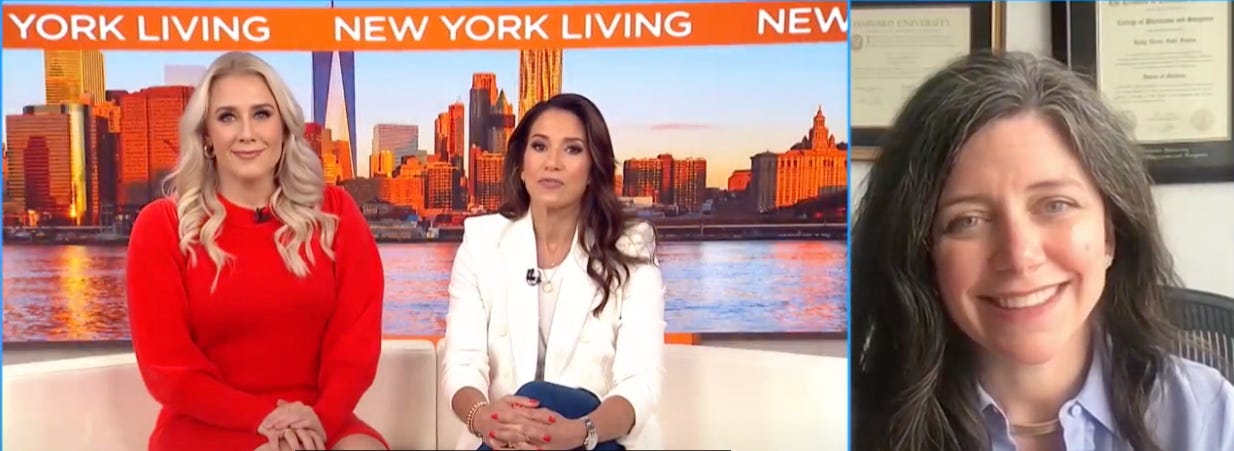How to limit the harmful effects of wildfire smoke
This episode may last for only a few days but we’re just beginning wildfire season in the U.S.
With wildfire smoke polluting our skies across the country, I’ve had a lot of questions about how to protect your family’s health. While everyone is effected by increased particulate matter from wildfires children with chronic conditions like asthma, prematurity, and disabilities are even more affected. Elderly individuals, adults with chronic cardiac or respiratory conditions, pregnant women and children also are generally at higher risk as are individuals who are affected by poverty.
Children are more susceptible for a few reasons. First physiologically, children breath faster and have a higher metabolic rate than adults which requires more ventilation. This means that pound for pound children receive a higher dose. Children’s airways are smaller and their immune systems less mature, making them more likely to have short term respiratory complications when the AQI is over 150.
On the bright side, poor air quality is not a new problem though the pollution from wildfires does seem to be slightly worse than urban pollution experienced in many parts of the world chronically. What’s important to understand is that this is not just right now or just in NYC. Wildfire season has become common place on the west coast and the Canadian wildfires are expected to continue all summer though NYC air should be improving tomorrow.
The short term risks relevant to children are mostly respiratory both asthma and increased risk of viral upper respiratory infections following smoke exposure. We do not have a lot of data about the long-term effects of wildfire smoke exposure from regular people (mostly it’s people like firefighters with more extreme exposures).
With this in mind, here are my suggestions to help your family stay safe and minimize the impact of the smoke on your health.
Monitor your AQI! It shows up in most weather apps or here.
Keep your windows and doors closed when the AQI is over 150.
Use an air purifier, upgrade your ventilation to use HEPA filters, or short term use a box fan and a filter.
Keeping your indoor air as free of smoke particles as possible is important. Air purifiers with HEPA filters and a large fan can help eliminate harmful particulates and odors in the air.
Here is a list of recommended air purifiers on NYT Wirecutter. I use the Coway Airmerga AP-1512HH Mighty at home.
Get your child’s asthma under control
If your child uses a controller medication (such as flovent, budesonide, symbicort or advair) sometimes, recently or in winter, I would also use it when AQI>150.
If your child has more significant asthma you may may want to increase the controller medication or use albuterol during this time, ask your doctor.
Bath when you get home and consider using saline nasal spray or a neti pot to reduce the particulate matter in your upper respiratory tract.
Wear a mask for walks outside
If you are going outside, I recommend wearing a mask (KN95, N95) to reduce your exposure to the particles in the air, especially if you’re exerting energy—even at a walking pace.
If possible, don’t exercise outdoors and avoid exercising indoors while the air is still hazy and/or you can smell smoke.
A lot of people are asking if exercising indoors is ok. And if your air quality is like mine—hazy air and you can smell smoke—I think it’s probably better not to. One option is to strength train instead (presumably cardio is a higher ventilation change).
This can be explained by basic math. If our ventilation in a minute is about 12 liters at rest, when we are exercising it goes up to 100 liters. So if you are exercising outside while the air is polluted with smoke you will breathe in a lot more debris.
* * *
If you follow along on instagram, you know I have an air quality monitor from IQAir, while it’s interesting to monitor and it’s helped me learn about my ventilation, I don’t think it’s really necessary. I’d encourage you to use those funds towards an air purifier or better HVAC filters instead. Especially because this probably won’t be the last bad air quality day…
I was on morning television here in NY to talk about this today. Check out the spot here.
Do you have any other questions? Share them with me in the comments or DM me on Instagram. I’ll do my best to answer them either on social media or in a follow-up newsletter.
Stay safe,
Kelly Fradin



Thank you for covering this!